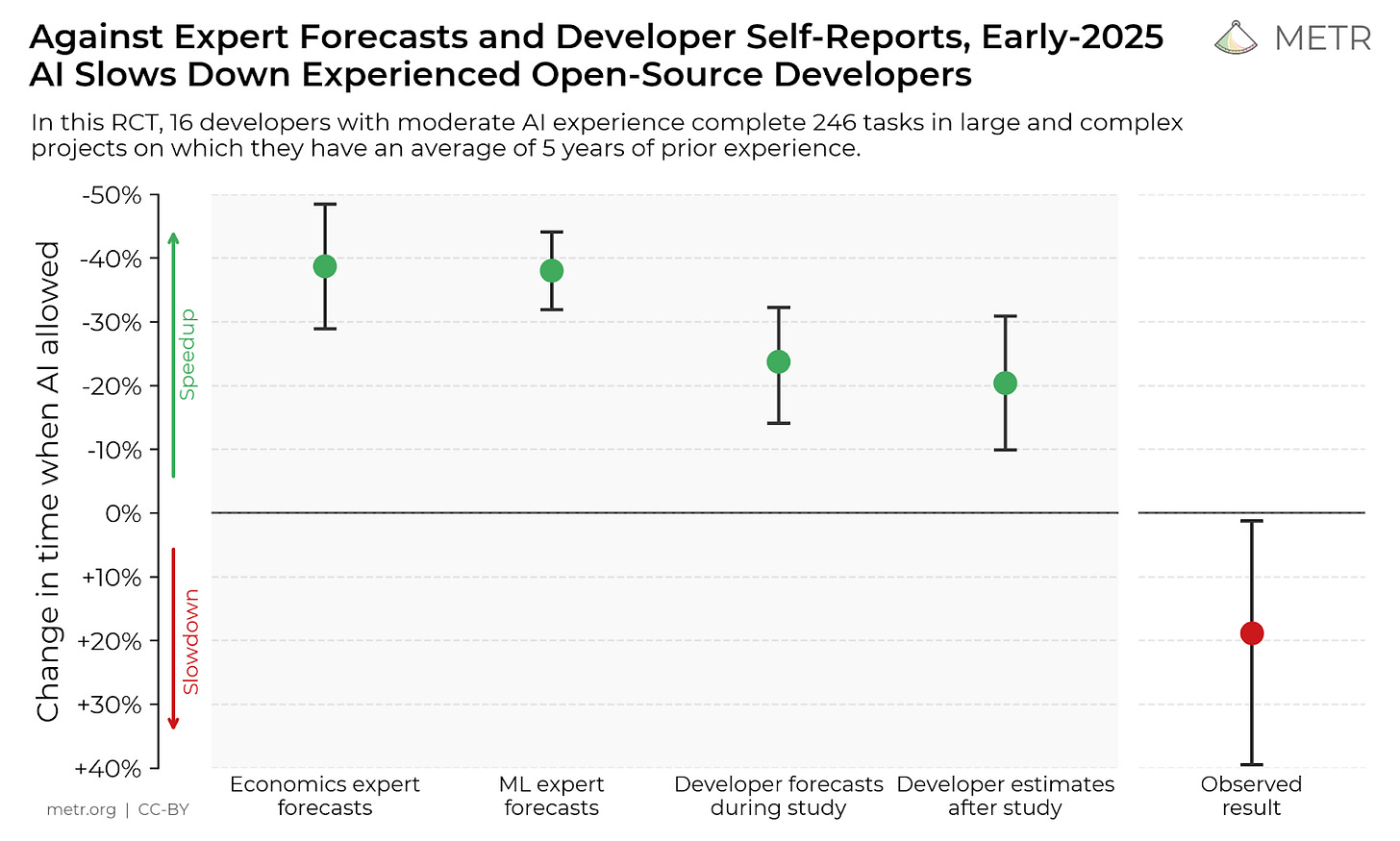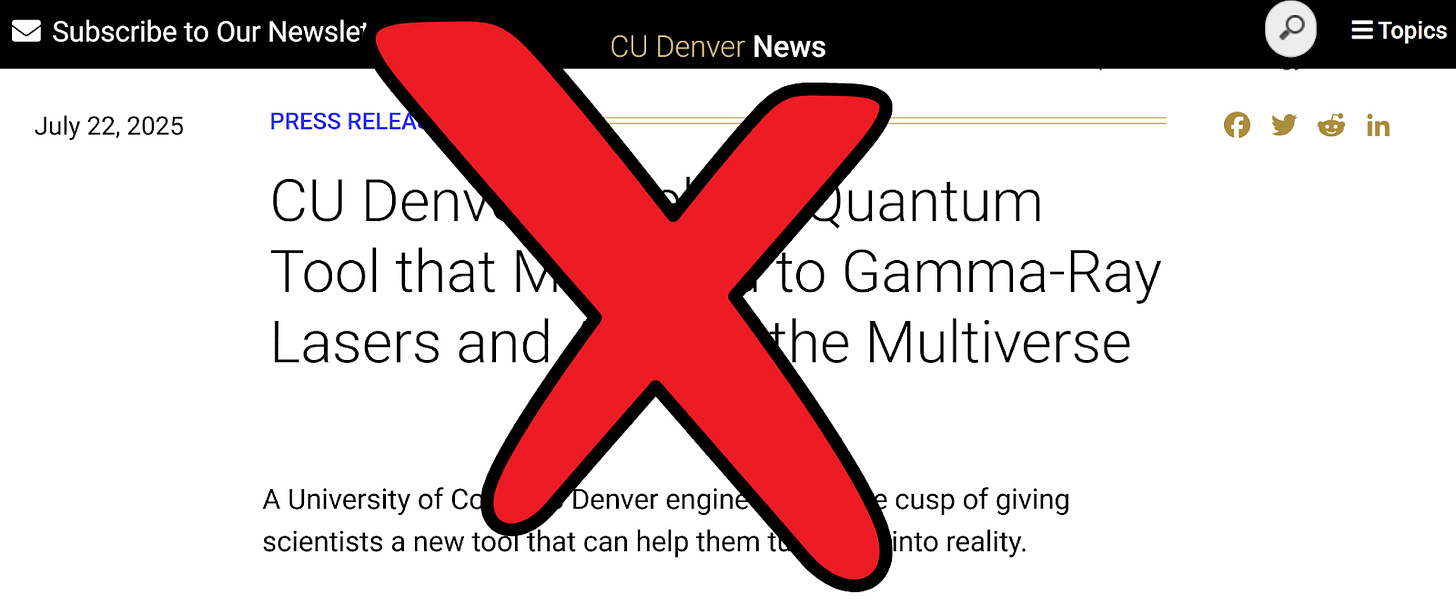AI Tools Suck, "Accessing the Multiverse," & the Origin of Life
This week’s science bits from SWTG
AI Tools Slow Down Experienced Software Developers
Researchers from the California-based nonprofit organization METR (Model Evaluation and Threat Research) found that using AI tools slows down software developers with more than 2 years of experience. The study was a random controlled trial with 16 participants who worked on a total of 246 tasks. The results fly in the face of the developers’ own predictions, which were that using AI would make them faster. This study is a much-needed update regarding AI coding tools available in early 2025, and reproduces several findings of last year. Full study here.
Yet Another Way to Not Access the Multiverse
This week’s crazy science headline comes from the University of Colorado Denver, and promises a quantum tool that can “access the multiverse.” Well, I had a look at the paper. It’s a theoretical study about electrical fields produced by plasmons, which are a type of collective oscillations that can occur, for example, in electron gases. The author uses both analytical methods and computer simulations to show how one might be able to produce field gradients that could one day come in handy for building small gamma ray lasers. It’s not entirely uninteresting, but it has nothing to do with the multiverse.
University press releases have become a major (if not THE major) source of scientific misinformation, a problem that is driven both by incompetent staff and the university’s need to appear relevant. The problem is amplified by popular science outlets which simply repeat the press releases. Often, like in this case, the misinformation actually goes back to the scientists themselves.
Scientists Might Have Found Missing Step for Origin of Life
Image Credit: Scripps Research
Scientists are fairly confident that life on earth originated through RNA (ribonucleic acid). RNA is believed to be the precursor of the DNA that now makes up our genetic code. But why RNA? Researchers at the Scripps Research Institute in California have found a possible explanation. An experiment that they carried out shows that diamidophosphate, a molecule that was likely present on early Earth in large amounts, reacts far more readily with ribose – a key ingredient in RNA – than with other similar molecules. This means that ribose has an easier time to grow to more complex structures, hence potentially explaining its dominance. Paper here, press release here.







